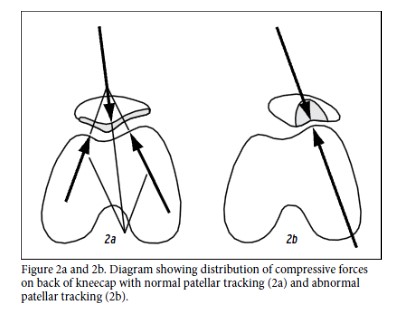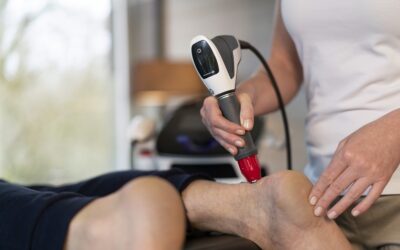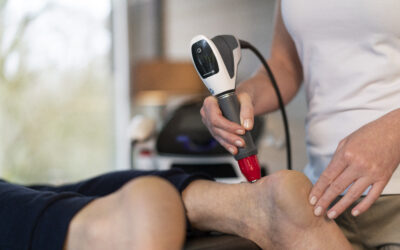Do you suffer from persistent knee pain, especially in the front of your knee? You may be dealing with anterior knee pain, a common condition that can impact your daily life. Let’s dive into the potential causes and explore effective treatment options, including working with a knee pain physiotherapist for knee rehabilitation.
Causes of Anterior Knee Pain
Numerous factors have been linked to the development of anterior knee pain, also known as patellofemoral pain syndrome (PFPS). It’s important to note that while some have more concrete evidence than others, understanding these factors can help guide your treatment. Here are some key factors associated with anterior knee pain:
- Muscle Activation and Reflex Response: One important aspect is the activation and reflex response time of the vastus medialis (VM) in relation to the vastus lateralis (VL). Recent research has shown that individuals with PFPS may exhibit decreased electromyographic activity, small delays in muscle firing, or a combination of both. This can lead to abnormal patellar tracking and, subsequently, pain.
- Tightness in Muscles: Tightness in various leg muscles, including the gastrocnemius, hamstring, quadriceps, and iliotibial band, can also contribute to abnormal patellar tracking. These tight muscles can create biomechanical force vectors that result in lateral glide or other tracking issues, potentially causing knee pain.
- Quadriceps Strength: Weakness in the quadriceps, especially the vastus medialis compared to the vastus lateralis, has been identified as a potential factor in lateral patellar tracking.
- Hip Musculature Strength: Hip musculature plays a significant role in knee stability and patellar tracking. Weakness in the hip abductors and iliopsoas can lead to an anterior tilt of the pelvis and internal hip rotation, both of which can increase the Q angle and stress on the patellofemoral joint.
- Q Angle: A naturally large Q angle can lead to maltracking of the patella. This angle tends to be slightly higher in females, either due to differences in pelvis width or decreased height.

Effective Treatment for Knee Pain
If you’re dealing with anterior knee pain, it’s essential to explore effective treatment options. Working with a knee pain physiotherapist can be particularly beneficial. They can provide tailored knee rehabilitation strategies to address your specific condition. Here are some treatment approaches that can help:
- Muscle Strengthening: Our elite level Physiotherapists can guide you through exercises to strengthen the relevant muscles, such as the quadriceps, hip abductors, and iliopsoas, to improve knee stability.
- Sports Massage and Stretching: Targeted Sports Massage combined with stretching exercises for the gastrocnemius, hamstrings, quadriceps, and iliotibial band can alleviate tightness and reduce the potential for abnormal tracking.
- Patellar Taping: Taping techniques can be used to encourage proper patellar alignment during activities.
- Biomechanical Analysis: A knee pain physiotherapist can conduct a thorough biomechanical analysis to identify any contributing factors and develop a personalised treatment plan.
- Orthotic Support: In some cases, orthotic devices may be recommended to provide additional support and alleviate stress on the knee joint.
In conclusion, anterior knee pain can be a challenging condition, but with the right treatment, you can find relief and get back to enjoying an active lifestyle. If you’re experiencing knee pain, especially if it’s related to abnormal patellar tracking, consider consulting one of our expert knee pain physiotherapists at Physica Health in Bagshot for tailored knee rehabilitation and treatment for knee pain. Don’t let knee pain hold you back from the activities you love.
Book an appointment at Physica Health now to get on top of your knee pain. Call us on 01276916346 or Email info@physicahealth.co.uk
References:
Connelly et al 2009 Differences in patellofemoral contact mechanics associated with patellofemoral pain syndrome. Journal of Biomechanics. Volume 42, Issue 16, 2802-2807
Waryasz GR, McDermott AY 2008 Patellofemoral pain syndrome (PFPS): a systematic review of anatomy and potential risk factors. Dynamic Medicine.7:9:1-14




0 Comments